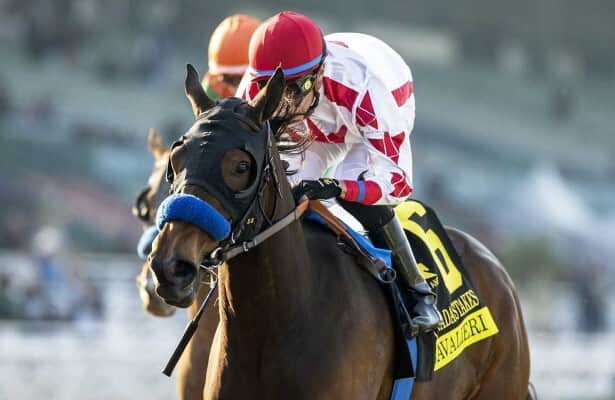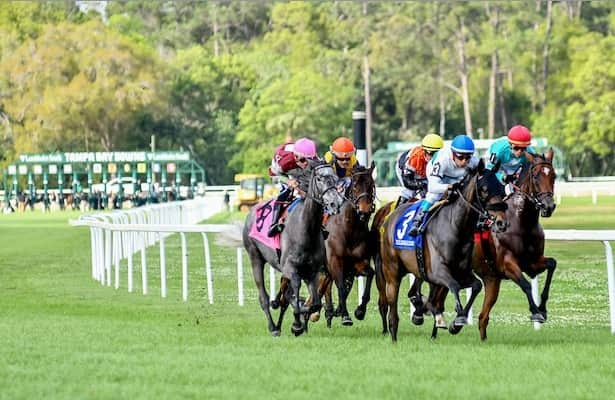Birmingham Race Course began with grand promises, faced diminishing returns

Whether the Birmingham Race Course began as a heavy favorite or a long shot, it faded down the stretch of a track that proved daunting against longer odds than anticipated.
Wind Creek Hospitality on Nov. 18 announced it is acquiring the Birmingham Race Course for an undisclosed amount.
Owned by the Poarch Band of Creek Indians, Atmore-based Wind Creek has purchased the track and its holdings from its longtime owners, the McGregor family.
Wind Creek said in a release Monday that it will transform the track “into a premier entertainment destination in the Southeast and will continue to offer parimutuel and historical horse racing games currently in operation.”
It’s unclear what that means. Kip Keefer, chairman of the Birmingham Racing Commission, said it has not yet received any paperwork related to the sale. which is expected to be finalized early in 2025.
Attempts to contact Wind Creek for comment were not immediately successful.
Birmingham City Councilman Hunter Williams, chair of the council’s Economic Development & Tourism Committee, said the “ink is not even dry” on the deal, but he’s excited.
“That site has been there for several decades and at its time, it was a premier spot. Time had its toll on it, and it became less and less a premier spot,” Williams said. “When you have a group like the Poarch (Band of) Creek Indians, who have funding and knowledge of running an entertainment site like that, it has a definite upside. They’ve been able to execute on some top-notch facilities that bring jobs and second line jobs for groups that service them, as well as a lot of revenue. I think there’s a lot of upside.”
History of the Birmingham Race Course
Whatever the plans may be, they will have to go a long way to top the ambition with which the venue opened back on March 4, 1987.
The Birmingham Turf Club, as it was then known, welcomed more than 13,000 visitors on opening day, according to reporting at the time. Traffic backed up for miles along John Rogers Drive, named for the legislator who pushed for the track. Crowds swarmed as the gates opened.
The Turf Club was an $85 million showplace, with a seven-story grandstand seating 5,200. There were several restaurants, lounges and private meeting areas.
The Birmingham Symphony Orchestra provided entertainment as high-dollar guests sipped champagne on opening night. Mayor Richard Arrington and several dignitaries were paraded around the track.
Queen Alexandra was the first horse to win a pari-mutuel thoroughbred race in Alabama history. The track tallied a betting handle of more than $720,000.
But still, there were ominous signs. A fireworks display sparked a blaze on the turf course. Betting lines backed up, as new clerks met new betters, with a little something lost in translation on both sides of the counter. A computer glitch meant that some people buying tickets found someone else sitting in their seats. And while the opening night total was high, it was south of the $1 million anticipated.
The Turf Club had been expected to bring $250 million to the Birmingham metro area, and herald the coming of restaurants, entertainment venues and other businesses.
But by the next night, March 5, when a mere 4,500 people showed up, it was obvious many expectations for the Turf Club were going to need rethinking. Owners retreated from the champagne and glitz of opening day, slashing prices and attempting to rebrand the track towards a blue-collar clientele. But on its one-year anniversary, the club was closed, with no working capital to operate. Its operators lost more than $50 million during a 175-day season.
Racing returned in 1989 with a new name – the Birmingham Race Course – but talk was already starting of greyhound racing being more sustainable.
That came in 1992, when a referendum allowed dogs at the track. New owner Milton McGregor began a $7 million conversion, putting the dog track inside the thoroughbred course. On Oct. 29 of that year, more than 12,000 people came for the first day, with bets on the inaugural race totaling more than $112,000. The dog gamble seemed to have paid off.
But again, the opening day crowds did not herald better things ahead. Within a few months, McGregor’s other venue, VictoryLand, was outearning the Race Course.
Trouble on the track
Horse racing ended at the venue in June 1995. On two occasions over the next 20 years, the track needed bailout money to continue operating, one time running three years behind on property taxes. McGregor’s family kept it going after his death in 2018.
In 2019, the course began offering machines that allowed users to place wagers on horse races that have already taken place, as simulcasting races elsewhere continued.
Live greyhound racing ceased at the Race Course in 2020, following the COVID-19 shutdown. But receipts from live greyhound racing in the years leading up to the decision had become “embarrassingly low,” a representative said at the time. Dog racing was also waning in popularity nationally. The Race Course then oversaw the disposition of around 800 greyhounds.
The only two operational dog tracks remaining in the United States are both located in West Virginia. Commercial greyhound racing is illegal in 43 states, and Alabama is one of only six states where it remains legal, but racing does not take place.
Related
Leading Parx jockey Sanchez will serve 7-day suspension
Photo: Jason Moran / Eclipse Sportswire Jockey Mychel Sanchez will serve a seven-day suspension and pay an additional $1,750 in fines
Bill Mott talks about plans for Sovereignty, Just F Y…
Photo: Gulfstream Park / Lauren King Sovereignty, dramatic late-running winner of the Fountain of Youth (G2) March 1, is being pointed
Up-and-coming Cavalieri chases Grade 1 glory in Beholder Mile
Photo: Santa Anita / Benoit Photo Cavalieri and Alpha Bella, who finished one-two in the Grade 3 La Cañada in January at Santa Anita,
4 stakes showcase shipping stars on Tampa Bay undercard
Photo: Gonzalo Anteliz Jr. / Eclipse Sportswire The stars will shine Saturday at Tampa Bay Downs, and not just in the Grade 3 Tampa Ba











